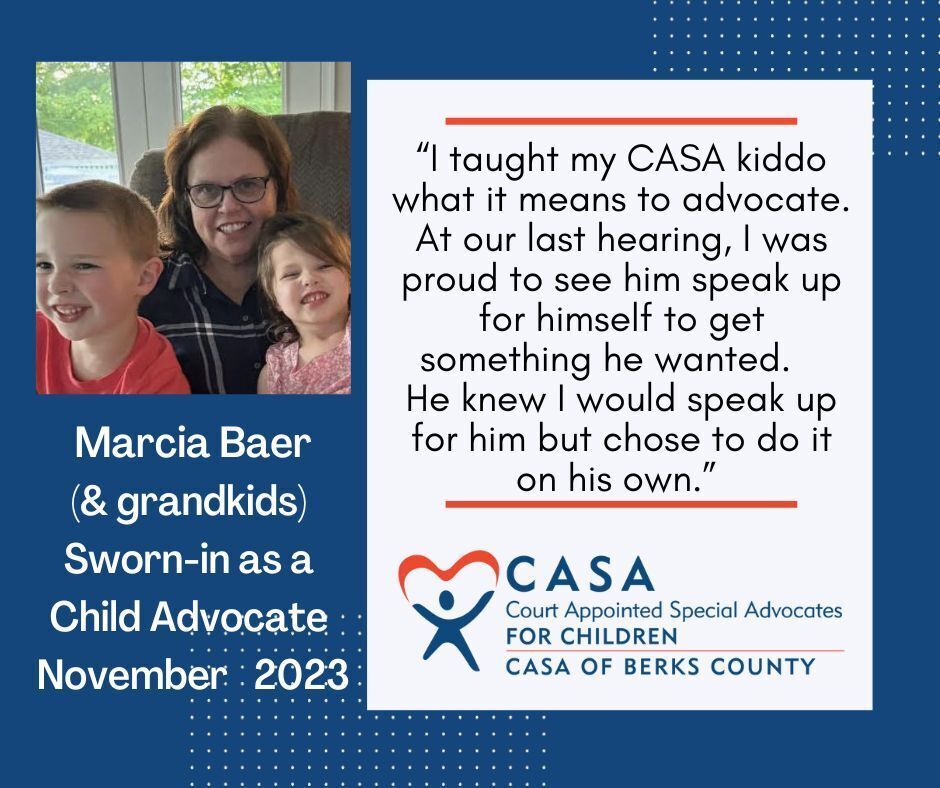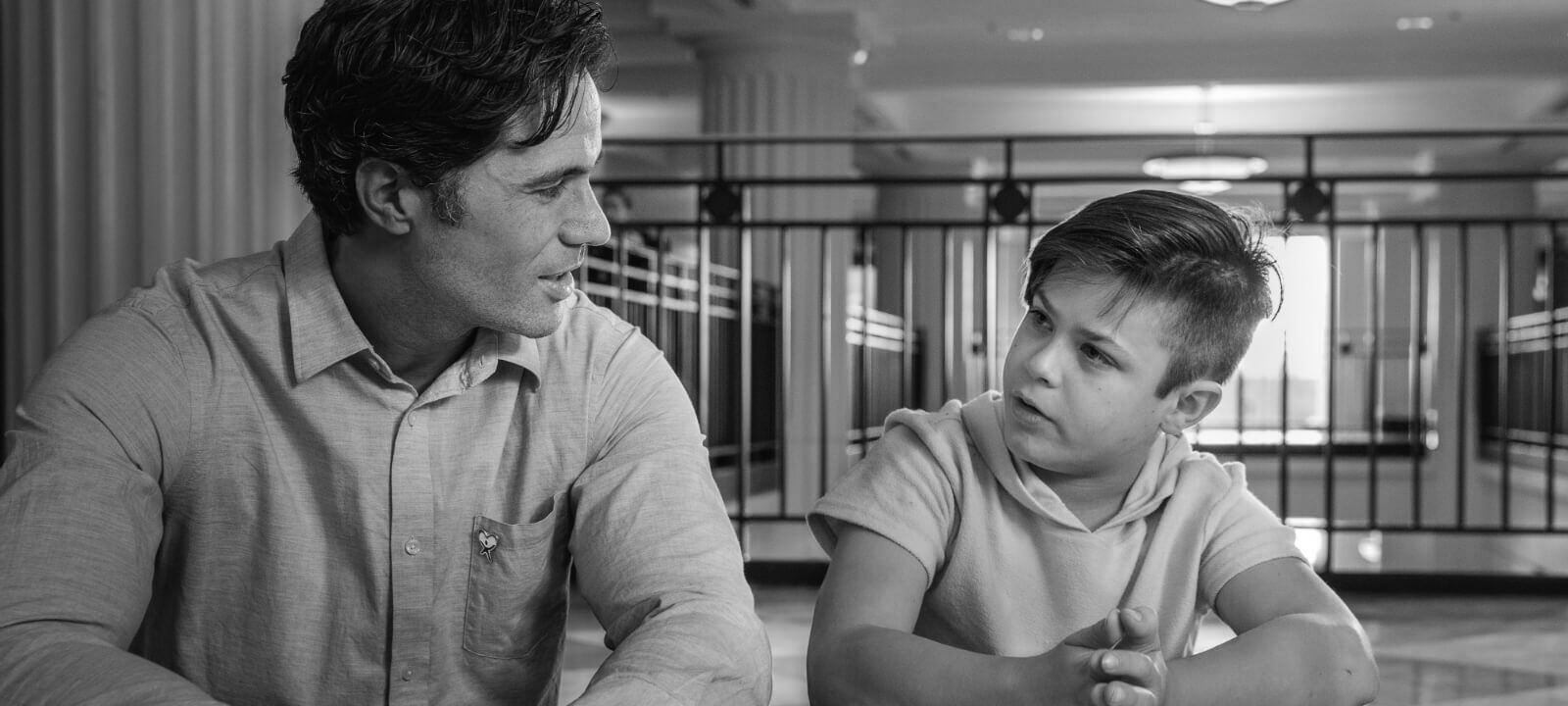
From Speech Therapist to Child Advocate: How Retirement Opened a New Chapter of Service for CASA Marcia Baer
1.)Tell me a little bit about yourself. ie. Age, work experiences, educational experiences, children or no children, interesting life experiences etc…..or whatever you want to share.
I have been retired for about two and a half years. I worked as a speech therapist in early intervention and school-age programs. My last job was in the Muhlenberg district, where I worked in the elementary, middle, and high schools for 15 years.
I am married and have raised four children who all went to Penn State and have had successes that make us proud. My husband and I have season tickets and support Penn State football. I love tailgating, especially seeing family and friends on Saturdays in the fall. I love dogs and currently have two rescues.
2.)What made you decide to take the steps to reach out to become a CASA?
When I worked in schools, I frequently saw students one-on-one. I developed relationships with them and often wished I could do more to help them. That was particularly true for those in foster care, who often shared their dreams and wishes related to a home and family.
3.)Did you find that the CASA classes were enough to get you started with your first case? Did you feel supported?
I definitely felt and still do feel supported. My questions are answered in a timely fashion, and I’ve been able to discuss them with others who were a part of the training process. Supervisors are CASAs themselves, so their knowledge and experience come from participation. The training was very interesting, and frankly, I thought I was more than informed because of my many years in schools. I learned so much more than I thought I would.
4.)How nervous were you to meet the child involved in your first case? Does it get easier?
I was used to meeting kids and working on a relationship with them. Some are more reserved than others, so I was concerned about that at first. I was also concerned that after so many adults had come and gone in their lives, the child just wouldn’t want another relationship. I have only had one case, and it is much easier now that we know each other. My child is very forthcoming, and we enjoy our time together.
5.)How long have you been a CASA volunteer and how many cases have you had?
I have been a CASA for a year and have an ongoing case.
6.)How do you fit being a CASA volunteer into your busy life?
What they say about retirement is true: you don’t know how you had time to work. But I really value the time I spend as a CASA. My child recently found out I was a volunteer, and he was very surprised that I didn’t have to be there for him but was still putting in the time to help him. He was impressed, and I was happy to be able to tell him how much our time together meant to me.
7.)With all the different people involved in a child’s case: family, foster family, institution, school, doctor, caseworkers etc… How do you stay organized? Can you share any tips that would help a new CASA volunteer?
I think about ways to help my child as much as I try to help his team. They have less time than I do but I can’t stop thinking of things we can do to help him so I often take the lead there. My job involved a lot of documentation, so I did that and made lists of things I wanted to share and people I thought could help.
8.)Is there an experience or a child’s action, in one of your cases, ever said or done something that has made you feel this is why I became a CASA?
I feel that I have explained my role to my child, and he understands. I let him know what it means to advocate. At our last hearing, I was proud to see him speak up for himself to get something he wanted. He is only 13, and many could not do that. He knew I would speak up for him but chose to do it on his own.
9.)We all know that becoming a CASA is not all butterflies and roses so what would you say is the hardest thing about being a CASA and what keeps you coming back?
I promised my child that I would never disappoint him, and I expected the same from him. He has had issues that aren’t optimal but understandable for his age and environment. I let him know that as long as he makes a plan to avoid behaviors and execute it, I will continue to support his progress
10.)Anything else you would like to share would be GREAT! You could completely ignore these questions and write your own thoughts and feelings about being a CASA. Hope these questions help get you started!
I have shared my experience and opportunities with others. I do that because there is a need but mostly because I feel so rewarded and want others to feel that too.


